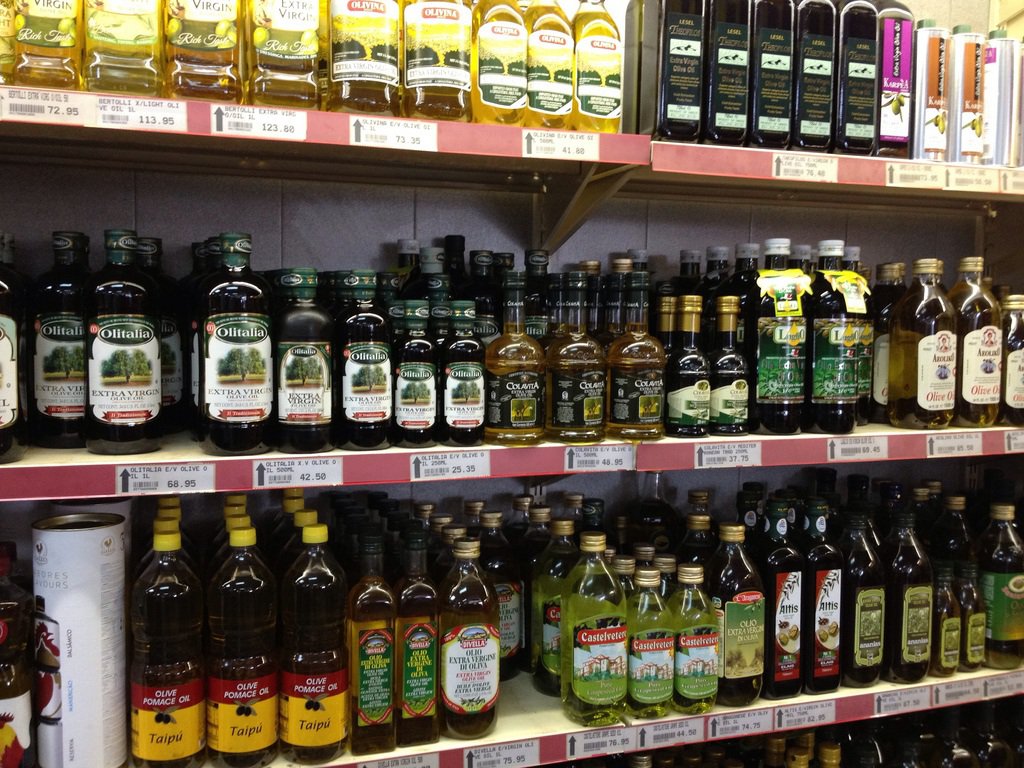This news will be downright scary for a lot of people who swear by their use of olive oil. We have heard so many things over the years that made many people switch completely over to extra virgin olive oil. We have even listened to TV chefs tell us that it’s the oil we should be using. They say it’s the oil that should be in everyone’s kitchen cabinets.
Now, we are hearing the news that there is a lot of fake olive oil on our supermarket shelves. Some of the very brands and markets we go to every week for our grocery are carrying this fake olive oil. Why would food producers sell us olive oil that is either not up to par or not even olive oil at all? We must know that somewhere in this confusion, money is involved. Anything labeled extra virgin olive oil costs more than just the standard vegetable or canola oil.
Here are five ways you can tell if your chosen brand of olive oil is fake:
1. Where was it made?
Italy and Greece are the two most trustworthy places on the planet that sell and deport olive oil to the U.S. and Canada. However, it should say it was pressed in Italy or Greece and processed with olives from that country. Just to have the Italy or Greece on the bottle is not enough. You must read and see where the olives came from and if they were actually pressed and bottled in that country.
2. How is it bottled?
Real olive oil should be bottled in certain types of bottles and containers. The bottles should be dark, amber. Light is bad for olive oil. Of course if you want to put some olive oil on a dinner table in a clear glass container, that is fine. But it should not travel in a clear glass container. The container should always protect the olive oil from light.
3. What does extra virgin mean and how can you tell if your olive oil is extra virgin?
If your olive oil says extra virgin on the label, and it should if that’s what you’re looking for, then it should come from the very first pressing of that season’s olives. All other pressings are not extra virgin. Also, if your olive oil says, “light”, “mild”, “for baking”, etc. and does not say “extra virgin”, then it is not extra virgin and if you read the back of the label and it does not mention that it comes from the season’s first pressing then it’s not extra virgin.
4. The Price
Yes, extra virgin olive oil should be more expensive than your regular olive oil or canola oils. It costs more for labor and pressing and so extra virgin olive oils are more expensive, noticeably so than your regular oils. Take the time to read your labels. Even though an oil may be expensive is also no guarantee that it is legitimate. You must read the back of the bottle to see where the oil is from and if it says that the olives came from that area before you pay the expensive price.
photo credit: Natural Living Ideas
